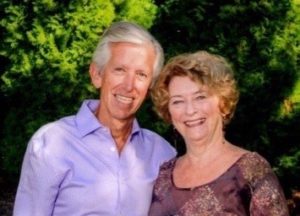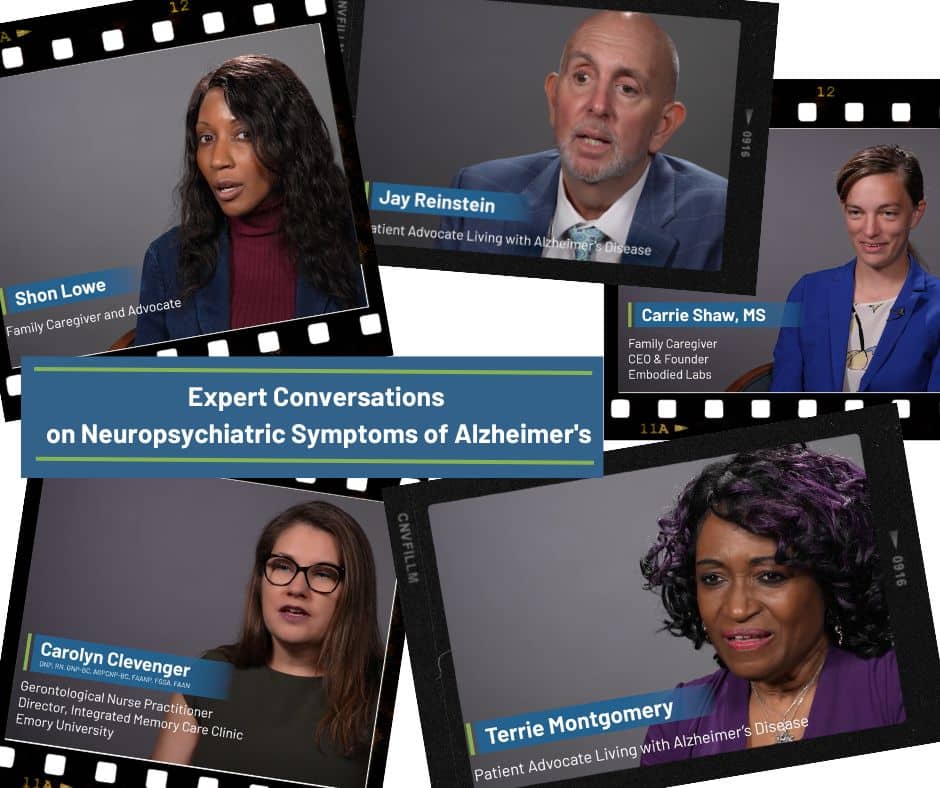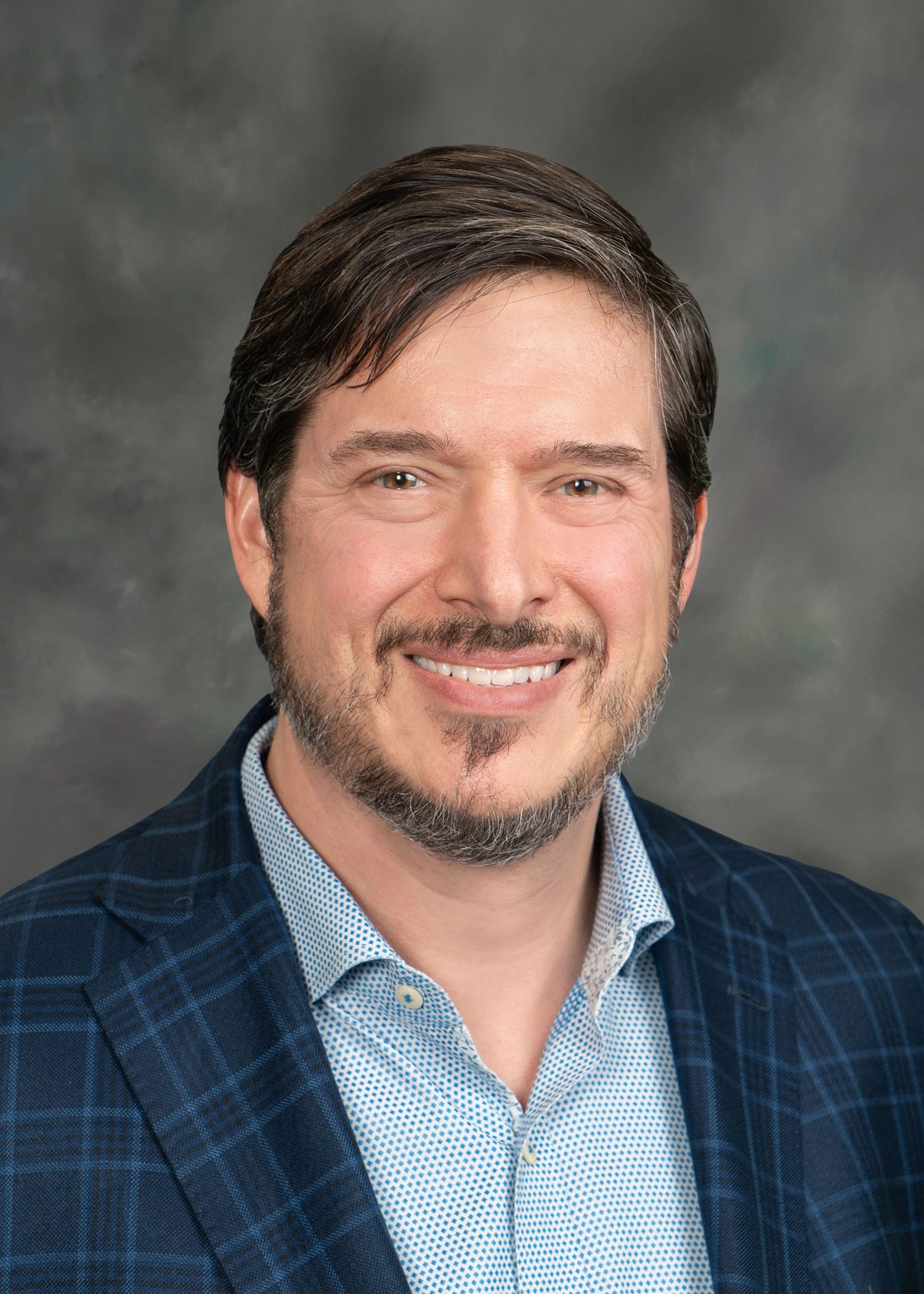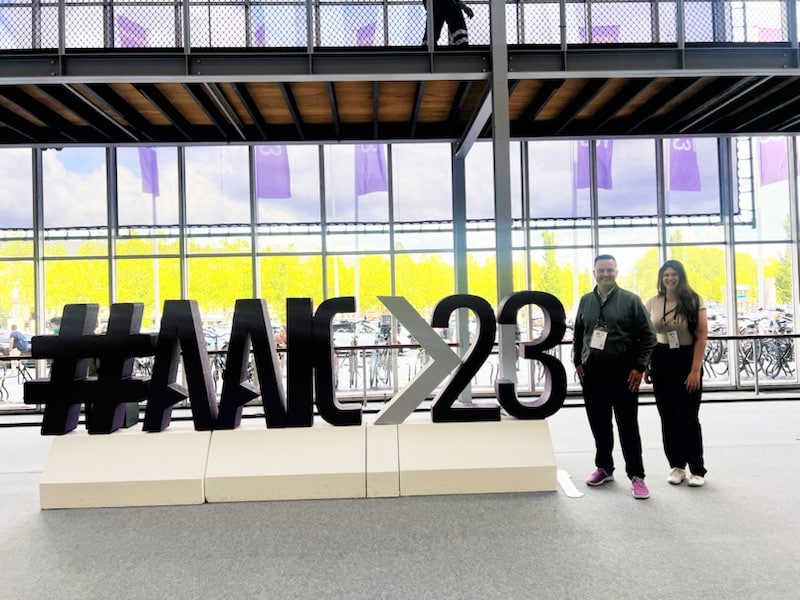Heroes in Health: An Event to Celebrate Community, Strength and Healthy Aging will honor individuals for their contributions to advance the experience of aging and recognize those whose outstanding efforts have helped older Americans and those with underlying conditions during the COVID-19 pandemic.
Geri Taylor was diagnosed with Alzheimer’s disease in 2012, and since that time, Geri and her husband Jim have spoken to over ten thousand people around the country and Europe in order to educate others about the disease, reduce the stigma, and encourage participation in Alzheimer’s clinical trials. Get to know Jim and Geri, this year’s Perennial Hero Award honorees:
The Perennial Hero Award is presented each year to honor an older individual who is actively contributing to create positive societal change and serves as a role model for people of all ages. How do you feel to receive this award?
The award was quite unexpected, and we greatly appreciate the recognition for our efforts in Alzheimer’s advocacy. The Alliance for Aging Research does very admirable work to inform seniors about advocacy as well as provide knowledge about their diseases and conditions. These awards to all recipients are a further way for the Alliance to inspire advocacy and empower citizens to speak up for themselves.
Our newest project is called MAP (Memory Advocates Program). This is a peer-to-peer effort to bring guidance to individuals newly diagnosed with dementia and their care partners. We will help them find online and local resources, provide supplemental information about their disease, give assistance in finding a clinical trial, and provide a trusted friend with whom to speak about their challenges with this new development in their lives.
Perhaps this award will add momentum to our efforts for funding the project. We have a wonderful start by having found great partners for the pilot project in New York City. CaringKind (an outstanding dementia support organization for over 40 years) and neurologists at New York University Langone Medical Center will be outstanding assets to the pilot. We hope to widely expand the program if our pilot is successful.
Listen to Jim and Geri Taylor’s story:
Why do you think that it’s important to be a patient advocate?
We have tried to inspire others care partners and people living with Alzheimer’s to be more active. We recall the outstanding work that AIDS activists accomplished in speeding the discovery of medical advances for their disease. People with dementia and their care partners are often reluctant to speak up or take action. In part this is due to the stigma of dementia. But remember, gay people encountered stigma when they began their fight for AIDS research. Their activism has helped speed acceptance of gay people as full members of society with all their inherent rights and responsibilities. The stigma of Alzheimer’s and dementia can also be countered if we speak up positively as individuals and as a group. Our society will benefit from having more knowledge and familiarity with dementia.
What has helped you get through times when you just aren’t feeling positive about getting older?
We have found that the greatest antidote for negative feelings is to overwhelm that emotion with the positive self-worth derived from useful ventures and accomplishments. As seniors, we have more time to volunteer, pursue hobbies, share time with family, and participate in other rewarding activities. We believe that life is most fulfilling when worthy goals are pursued. Although we often have the complication of physical challenges as we age, this axiom does not change in retirement. Geri’s diagnosis of Alzheimer’s presented us with great opportunity. Yes, there is sadness with any terminal diagnosis, but we have chosen to turn to the positive possibilities that accompanied the bad news. In this way, the sadness and continuing losses have been greatly mitigated.
In your opinion, what is the biggest challenge facing older adults today?
There are certainly many challenges for seniors today. The rate of change in our current society seems so much more rapid than it did when we were growing up in the 1950s. Technological advances are reaching into every aspect of our daily living. These changes frequently pose challenges for seniors and are sometimes a distancing factor with younger generations.
Modern medicine offers many alternative treatments today. In past times physicians never even discussed alternatives with their patients or suggested second opinions. We are frequently challenged with medical alternatives and decisions about which we are not necessarily well informed.
But perhaps the greatest challenge for many of us post-retirement is finding meaning for ourselves after our 40+ hours/week vocations have terminated. It can be a very disorienting transition and presents challenges to our sense of self, our relationships, and our happiness.
What is one thing that people might not know about you?
Geri: After receiving my Master of Public Health in biostatistics from Columbia, I worked at Weill/Cornell Hospital in New York City. While there, I researched and co-authored the first article on medical second opinion in the New England Journal of Medicine. When making an early presentation of our research results to an audience of physicians, we were met with strong animosity! Today, “second opinion” is standard medical practice, fully reimbursable by insurance, and a common household word. I like to think of our Alzheimer’s advocacy as a continuation of my desire to improve the science of health care.
Jim: I was very successful on stage during my college days and considered a career in theater rather than going to business school. This talent has assisted me in the public speaking we do today about living with Alzheimer’s.
After Geri was diagnosed, we resolved to live as fully as possible, and that commitment gave me the courage to audition in NYC for a professional production. I was actually cast for a minor role in a new show—ironically about a man with Alzheimer’s. It was a wonderful, enriching experience for me.
The Alliance for Aging Research will hold the 27th Annual Bipartisan Congressional Awards virtually on Tuesday, September 15, 2020. Purchase sponsorships & tickets here.






